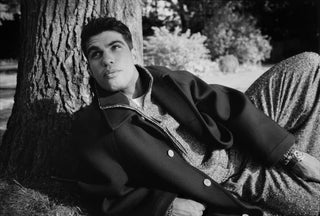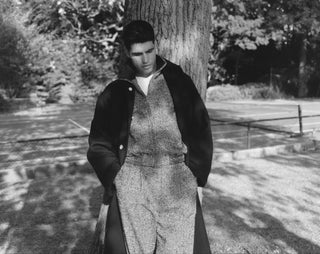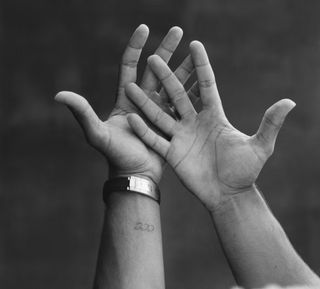Exclusive Interview: Carlos Alcaraz x Financial Times
FT Story by Raphael Abraham
Photography by Dan Martensen
Styling by Isabelle Kountoure
In an exclusive interview with the Financial Times, 22‑year‑old Carlos Alcaraz reflects on his meteoric rise to five Grand Slam titles and his evolving approach to life as tennis’s brightest young star. Having first claimed world No. 1 at 19 with a US Open victory in 2022, he now ranks world No. 2, trailing only his close friend and rival Jannik Sinner.
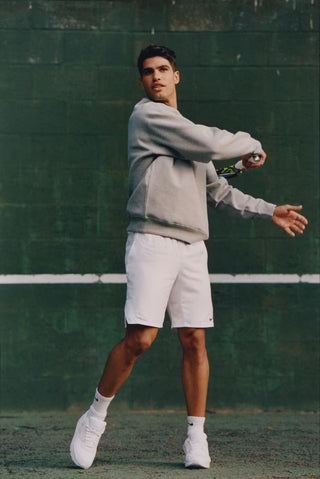

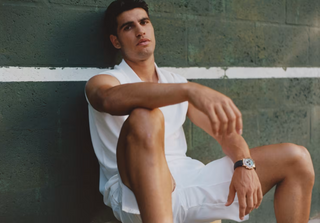
Alcaraz is widely admired not just for his explosive game, but also for his playfulness, charisma, and authentic demeanor. Off court, he maintains a grounded lifestyle—still living with his parents in Murcia, cherishing family time, joking with teammates, sampling sweets, and collecting sneakers, rejecting the stringent asceticism embraced by some peers.
He says scheduling is relentless and cautions that enjoyment fades without proper rest. Finding joy in daily life, he actively carves out moments to disconnect and recharge.
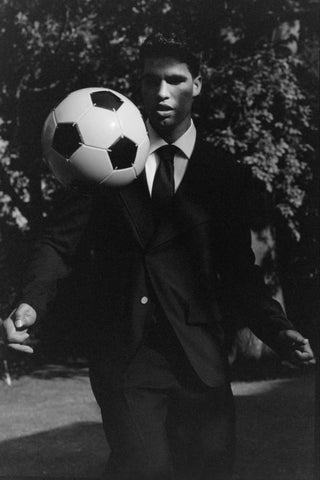
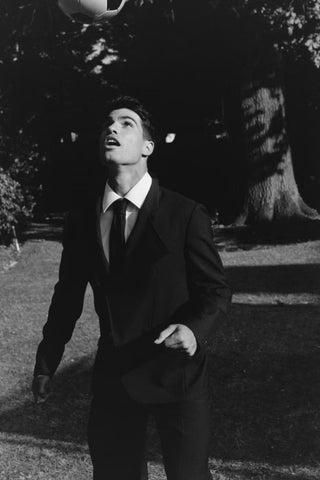
The French Open title in June 2025 ranks as a career-defining moment. Facing down Jannik Sinner in a two‑sets‑to‑love deficit, Alcaraz saved three championship points to win one of the most epic finals in Roland Garros history. He credits careful mental sequencing—focusing point by point—and unwavering self‑belief, arguing that any display of weakness yields to defeat.
Alcaraz also addresses the constant comparisons to the "Big Three"—Federer, Nadal, Djokovic—emphasizing he and Sinner have no obligation to replicate their legacy. Instead, he prioritizes preserving personal ideals and integrity over succumbing to external expectations.
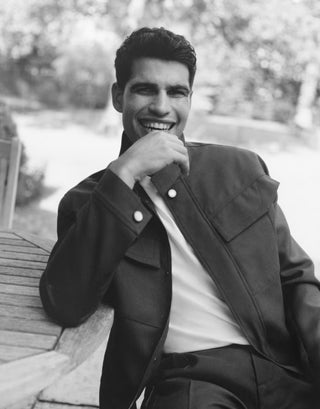
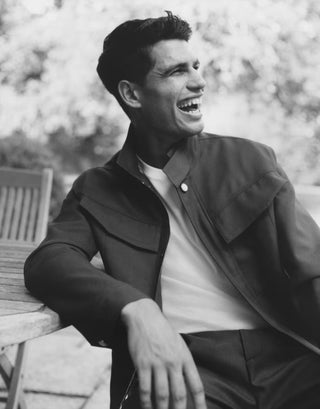
Concerned with players' well‑being, Alcaraz pushes for reforms within the ATP. He is advocating for calendar adjustments to allow more rest and vacation time for athletes, arguing that current demands risk burnout despite being a challenging change to enact.
Though the interview touches lightly on fashion and media—Alcaraz recently starred in a Netflix docuseries titled “Carlos Alcaraz: My Way”, a nod to his off‑court personality—his priority remains the sport and being himself within it.
Overall, this interview offers a portrait of a champion who pairs relentless competitive fire with a rare humility. It showcases Alcaraz’s belief in the power of joy, authenticity, and mental strength—both as a competitor and as a voice for change in tennis.
